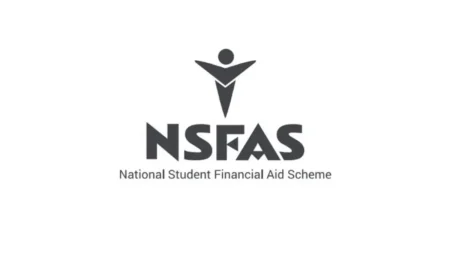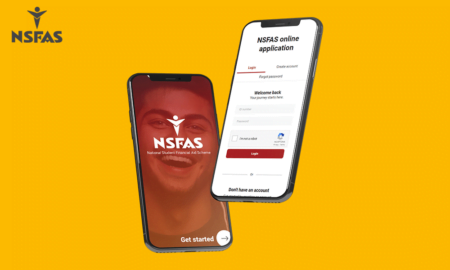If your NSFAS application has been rejected, you get a chance to appeal the decision. The NSFAS appeals system provides a second chance at getting approve for funding for students who depend on financial aid. Mistakes happen, and sometimes during the most important stages of life, so here is a guide on how to avoid and/or fix common errors you may encounter while appealing your NSFAS Status.
Three Common NSFAS Appeal Errors to Look Out For
1. Incorrect Personal Details
Sometimes, when rushing to complete applications and appeal you may end up making mistakes in crucial personal details.
- Spelling Errors in Names: This might seem trivial, but a misspelled name can lead to confusion about your identity, or worse, your application being linked to someone else’s records. Always double-check the spelling of your name on all documents.
- Incorrect Identification Numbers: A missing or extra digit in your ID number can lead to a dead end in processing your application. This error can be particularly problematic as it might not only delay the process but can also lead to legal issues, especially if it mistakenly matches another individual’s ID.
- Outdated or Inactive Email Addresses: Communication is key in any application process. Using an email address that you no longer access can result in missing out on crucial updates or feedback. Ensure that the email address provided is one you check regularly.
- Mismatched Information Across Documents: Inconsistencies in personal details across different documents can raise red flags. For instance, if your application form states one address while your ID reflects another, it might lead to confusion about your current residence or authenticity.
- Typos in Contact Information: Incorrect phone numbers or email addresses can mean missing out on vital communication. A single digit error in your contact information can direct communication to someone else entirely.
2. No Backup Documents
NSFAS funds a lot of students, and they relay on the correct evidence provided to make a call. In your NSFAS appeals, always make sure to attach documents that back up your claim. For instance, if you are appealing because NSFAS got your household income wrong, you have to provide supporting documents showing the correct income or lack hereof.
Read More: NSFAS Supporting Documents Checklist for 2024
- Provide Relevant Supporting Documents: If your appeal is based on an error in the recorded household income, it’s crucial to attach documents that clearly demonstrate the actual income levels. This could include recent payslips, employment letters, or even affidavits in cases of informal income.
- Proof of Changed Circumstances: If your appeal involves changes in your family’s financial situation, such as a parent losing a job, provide documents like a retrenchment letter or unemployment registration. These documents serve as concrete proof of your changed financial status.
- Certified Copies: NSFAS often requires that all documents be certified to ensure their validity. Ensure that you have certified copies of relevant documents like ID books/cards, academic records, and financial statements.
- Organize Your Documents: Properly label and organize your documents. This not only makes the review process easier but also demonstrates your attention to detail and seriousness about the appeal.
- Timely Submission: Make sure to submit these documents within the stipulated timeframe. Late submissions might lead to delays or even non-consideration of your appeal.
- Keep Copies for Yourself: Always keep a copy of every document you submit. This ensures you have a backup in case of any discrepancies or if your documents are misplaced.
3. Late Submission
Timing is everything. Late submission of NSFAS appeals is a common error. NSFAS can not accept your appeal if it is after the deadline, no matter how legitimate your reasons are.
- Strict Deadlines: NSFAS operates on strict deadlines, and these are non-negotiable. Submitting an appeal after the set deadline, regardless of the reason, almost invariably results in rejection. Understand and respect these time frames.
- Impact of Late Appeals: Late submissions not only affect the individual applicant but can also contribute to systemic delays. With millions of students depending on NSFAS for funding, each late appeal can add to a backlog that affects many others.
- Planning and Preparation: To avoid late submissions, start preparing your appeal as soon as you receive the initial NSFAS decision. This gives you ample time to gather all necessary documents and information.
- Setting Reminders: Utilize digital tools like calendar apps to set reminders a few days before the deadline. This ensures that you don’t miss the submission date.
- Understanding the Consequences: Be aware that late submission is not just about missing a chance for the current academic year; it can also affect your entire educational trajectory, especially if you rely on NSFAS funding.
- Seeking Assistance: If you are unsure about the process or facing difficulties, seek assistance well in advance. Contact NSFAS, educational counselors, or student support services at your institution.
- Backup Plan: Always have a backup plan in case you encounter unforeseen circumstances. This could include having someone else ready to submit on your behalf if you’re unable to do so.
Steps to Fix Errors in the NSFAS Appeal Process
1. Review your Appeal
Carefully examine the details provided in your appeal. Identify any errors, such as misspelled names, incorrect ID numbers or outdated contact information. Inspect the entire form, and maybe even have a friend check it, before making the final submission.
- Double-Check Personal Information: Errors in personal details are common but avoidable. Carefully check your name, ID number, contact details, and other personal information. Such mistakes can lead to unnecessary delays or even rejection of your appeal.
- Accuracy of Financial Information: Ensure that all financial information, such as household income, is accurately represented. Cross-check these details with your supporting documents to ensure consistency.
- Completeness of the Appeal: Review the appeal criteria and instructions provided by NSFAS to make sure you have addressed all the required points. Missing out on a key aspect of the appeal can weaken your case.
- Clarity and Conciseness: Your appeal should be clear and to the point. Avoid unnecessary information that does not directly support your appeal. Clarity helps the evaluators understand your situation better.
- Seek a Second Opinion: Sometimes, a fresh pair of eyes can catch errors you might have overlooked. Have a friend, family member, or educational advisor review your appeal. They might also provide feedback on how to strengthen your argument.
- Check for Required Attachments: Confirm that all necessary documents are attached and are the correct versions. Missing documents can lead to an incomplete appeal.
- Final Read-through: Before hitting the submit button, do a final read-through. Check for typos, grammatical errors, and ensure that the appeal is well-organized.
2. Provide the Correct Documents
Make sure that once you have double-checked your form, you have all the documents required for your appeal. Be sure to upload all relevant documents at their correct sections.
- Understand Document Requirements: Each appeal might require different types of documents based on the nature of your appeal. Familiarize yourself with the specific documentation required for your case. This could include financial statements, academic records, or proof of changed circumstances.
- Gather All Documents Early: Start collecting the required documents as soon as you plan to file an appeal. This avoids last-minute rushes and ensures you have time to obtain any documents that might take longer to acquire.
- Ensure Documents are Up-to-Date and Valid: Check the validity of your documents. Expired or outdated documents can be grounds for an unsuccessful appeal. For instance, financial documents should reflect the most current financial situation.
- Certify Your Documents: If required, ensure that your documents are certified as true copies of the original. This is often a requirement for official processes like NSFAS appeals.
- Organize Documents According to Sections: When uploading your documents, pay attention to where each document should be uploaded. Misplaced documents can lead to processing delays or even the impression of an incomplete application.
- Label Documents Clearly: Clearly label each document with your name and what the document represents (e.g., “John Doe – Proof of Income”). This helps the reviewers easily identify and process your documents.
- Check File Formats and Sizes: Ensure that your documents are in the accepted file formats and sizes as specified by NSFAS. Incompatible files might not upload correctly or could be unreadable.
- Keep Copies: Keep digital and/or physical copies of all documents you submit. In case of any disputes or requests for resubmission, you will have the necessary backups.
3. Be Informed and On Time
Knowing when the NSFAS appeals open and being prepared when it does will save you a lot of time. For some institutions, NSFAS does come to the campus to assist students and pass on other information. Make sure you attend these so you are always in the know about what is happening, even if it is not related to the appeal process.
- Know the Appeal Opening Dates: Mark your calendar with the opening dates for NSFAS appeals. This information is usually available on the NSFAS website, through educational institutions, or via student support services. Being aware of these dates ensures you don’t miss the window for submitting your appeal.
- Prepare in Advance: Do not wait until the appeal process opens to start preparing. Gather all necessary documents, complete your appeal form, and have everything ready for submission as soon as the process begins.
- Attend NSFAS Sessions on Campus: If NSFAS representatives visit your campus, make it a point to attend these sessions. These visits are valuable opportunities to get firsthand information, ask questions, and clarify any doubts you might have.
- Stay Updated with NSFAS Announcements: Regularly check NSFAS communications, be it through their website, social media, or emails sent to students. They often provide updates, changes in processes, or additional guidance that could be crucial for your appeal.
- Utilize Campus Resources: Many educational institutions have support services for students applying for NSFAS. These resources can offer guidance, help with document preparation, and even provide insights into the appeal process.
- Network with Fellow Students: Engage with other students who are also going through the NSFAS appeal process. They can be a source of support, information, and advice.
- Respond Promptly to NSFAS Queries: If NSFAS requests additional information or clarification, respond as quickly as possible. Delay in responding can lead to delays in the processing of your appeal.
Additional Resources for NSFAS Appeal
Here are Important documents available for download:
- Failure_to_meet_academic_eligibility_1 (PDF)
- Appealing_N+1_1 (PDF)
- N+2_students_with_disability_1 (PDF)
- registered_for_50__or_less_(final year course credits_ to_complete_1 (PDF)
Frequently Asked Questions (FAQs)
Q: Can I appeal my NSFAS application more than once?
A: Yes, you can lodge an NSFAS Appeal if your circumstances have changed. But remember, each appeal must be accompanied by appropriate supporting documents.
Q: What happens after I submit my NSFAS appeal?
A: Once your appeal is received, NSFAS will review the information and reach a decision. You will be informed of the outcome via the contact details provided in your appeal.
Q: Can I track the status of my NSFAS appeals?
A: Yes, NSFAS provides a mechanism for applicants to track the status of their appeals. This information is often available on their official website. Applicants can log in using their provided credentials or follow the outlined procedure for tracking appeal status.
Q: What Reasons are Considered Valid for an Appeal?
A: Valid reasons for an NSFAS appeal might include changes in your family’s financial situation, errors in the application process, or extraordinary personal circumstances impacting your academic performance or financial status.
Q: How Long Does the NSFAS Appeal Process Take?
A: The processing time for an appeal can vary. Generally, it takes a few weeks from the date of submission for NSFAS to review and respond to your appeal. Keep an eye on your myNSFAS account for updates.
Avoid making common errors in your NSFAS status appeals by being thorough, providing the correct documentation, and respecting deadlines. One last piece of advice, always keep a copy of all the documents related to your application and appeal. It might come in handy someday.










